Vanessa McMullan of the Guidance Center appears on a webinar on Maternal Depression, The Schuyler Center for Analysis and Advocacy Webinar, November 4, 2020
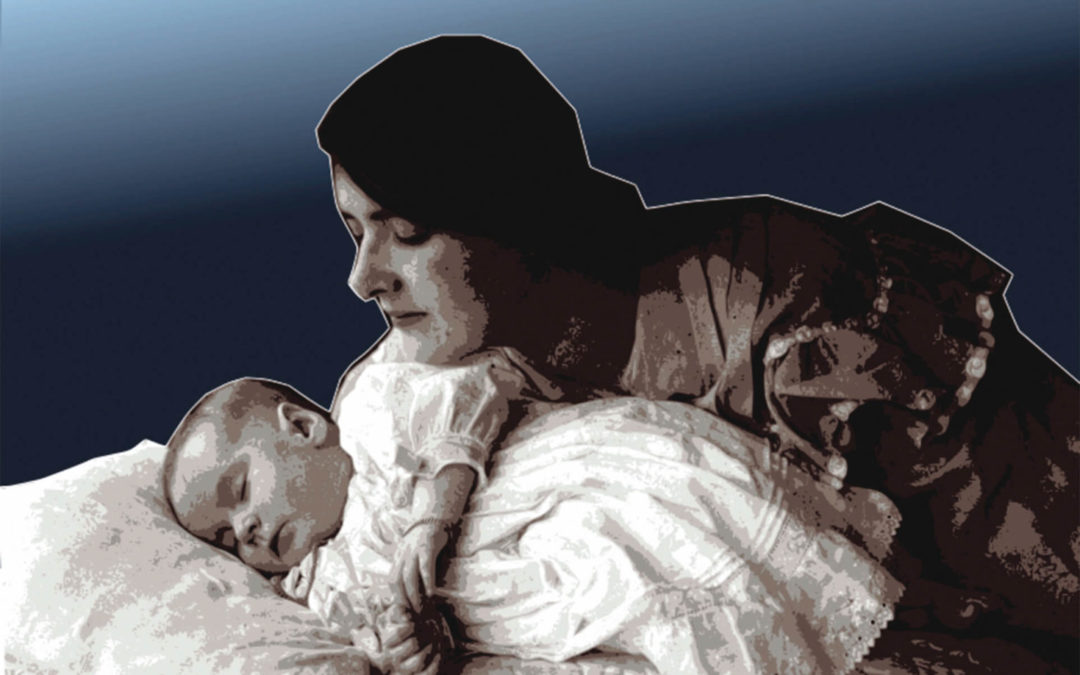
Maternal Depression Rates Rise During Pandemic, By Vanessa McMullan, December 7, 2020
Pregnancy and childbirth are exciting times in a family’s life, filled with joy and awe. For some mothers, however, the situation is far more complex. While many women experience some mild mood changes during or after the birth of a child, 15 to 20 percent of women have more significant symptoms of postpartum depression and other perinatal mood and anxiety disorders or PMADs.
Fifteen to 20 percent of women have more significant symptoms of postpartum depression and other perinatal mood and anxiety disorders or PMADs.
At North Shore Child & Family Guidance Center, we work with moms and pregnant women whose symptoms may include feelings of sadness, irritability, guilt, lack of interest in the baby and changes in eating and sleeping habits. Some also experience trouble concentrating, thoughts of hopelessness and even thoughts of harming the baby or herself.
Research shows that the pandemic has increased the incidents of PMADs, and also heightened symptoms. One study found that the rate of symptoms of depression in new mothers amid the pandemic was nearly three times the rate of new mothers’ symptoms pre-pandemic.
The reality is that, as with so much about the virus, there are still many unknowns as to the impact of COVID-19 during pregnancy and for babies and young children, which creates enormous stress. Being a new mother can be isolating under normal circumstances, but during the quarantine and social distancing protocols, the sense of isolation has been greatly magnified. Expectant and new parents are concerned about a host of issues, from financial and job stability to the health of their babies and themselves.
The pregnancy and birth experience, especially during the height of the pandemic, was anything but normal. Many pregnant women and new moms had to go to their doctor’s appointments by themselves, and if they got bad news, they had no one with them to lean on. Most had no baby showers, no visits from grandparents, no birthday parties—even an absence of partners in the hospital before, during and after the birth. They often had very little support from friends and relatives who typically help the new parents in the days after the baby comes home, for fear of catching or transmitting the virus.
Families who have school-aged children have had to struggle with the decision of whether or not to send them back to the classroom, where they may be exposed to the virus and bring it home to the family. Even though New York has improved in terms of COVID-19 numbers since the height of the pandemic, being cautious is still important, and we have no way of knowing what the next several months will bring. And the fact that all of us will be inside more will likely present significant challenges.
The good news is that North Shore Child & Family Guidance Center has been able to serve these moms and families during the pandemic through remote therapy, either by video or phone. In addition to individual and family therapy, the Guidance Center has continued to offer remote group counseling, so parents don’t feel so alone. Our psychiatrists are also seeing clients remotely, in the cases where medication is needed.
Through our Diane Goldberg Maternal Depression Program, the Guidance Center provides:
• Screening and assessments
• Individual, couple and family therapy
• Crisis intervention consultation
• Psychiatric evaluations and medication management, where needed
• Support groups
• Back-to-work family support
• Help with self-care
As one new mother told us, “You’ve been my lifeline during this time when I needed connection and reassurance and support.”
If you or someone you love is experiencing symptoms of postpartum depression or other perinatal mood disorders, call the Guidance Center at 516-626-1971 and tell them you are seeking help for maternal depression. We are here for you.
Vanessa McMullan, LCSW, is supervisor at The Marks Family Right from the Start 0-3+ Center at North Shore Child & Family Guidance Center. She also heads up the organization’s Diane Goldberg Maternal Depression Program. Call 516-626-1971 or visit www.northshorechildguidance.org to learn more.
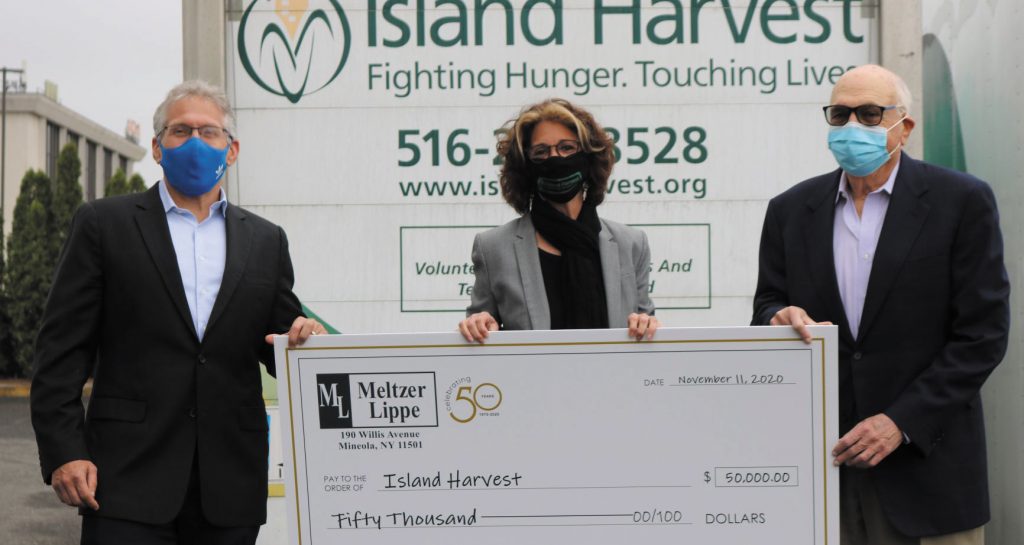
Corporate Giving Still Vital in the Time of COVID, Long Island Business News, November 20, 2020
Corporate giving is making life a little easier for some of the Long Islanders struggling to make ends meet in the time of COVID-19.
And amid the pandemic, whose earlier shutdown triggered economic fallout across the region and around the country, the need is great.
Just ask Randi Shubin Dresner, the president and CEO of Island Harvest Food Bank, which helps feed the food insecure on Long Island.
“Normally we help 300,000 families a year, but from the end of March to June, we helped 300,000 families,” she said.
This year, Island Harvest increased its food purchases by 500 percent, she said.
Thankfully, some corporate donors and individuals are stepping up.
Take the Mineola-based law firm Meltzer, Lippe, Goldstein and Breitstone. The firm was gearing up pre-COVID to celebrate its 50th anniversary and wanted to meaningfully mark the occasion.
“Our plans, like so many others, were derailed by the pandemic,” said David Heymann, the firm’s managing partner.
“Accepting the fact that our big day could not happen in 2020, we determined to find some meaningful action we could take to ‘do good’ in recognition of 50 years of legal service and advice to the community,” he said. “We came to the conclusion that with all the stress and suffering, a virtual bash was not appropriate, and our funds could be put to better use, benefitting our less fortunate neighbors. We are extremely proud to have partnered with Island Harvest and the good works that they do.”
The firm’s initiative comes at a time when donors have stepped up their philanthropic giving amid the pandemic. Twenty-five percent of the philanthropic individuals surveyed in a 2020 poll expected to increase their donations, while 54 percent said they would maintain their giving levels, according to Fidelity Charitable, an independent public charity that helps donors support nonprofit organizations. But nearly half of those surveyed expected they would decrease or stop volunteering because of the pandemic. Conducted by the independent research firm Artemis Strategy Group, the survey heard from 1,842 adults earlier this year in the United States.
Dresner said that when Lew Meltzer, the Meltzer, Lippe chairman, toured the Island Harvest facility, he hoped his donation would challenge other law firms to donate as well.
Meanwhile, North Shore Child and Family Guidance Center in Roslyn Heights is also benefitting from generous philanthropy. Its board member Andrew Marcell, the CEO at Aon Reinsurance Solutions, spearheaded a private, socially distanced golf event, and his company raised over $56,000 for the nonprofit.
“This money provides crucial funding for our mental health services for kids and families throughout Nassau County, especially important during the pandemic, when the need is so great,” Andrew Malekoff, North Shore Child and Family Guidance Center’s executive director and CEO, said.
And Family & Children’s Association, one of the largest and oldest health and human service agencies on Long Island, is a beneficiary of Hassett Subaru’s Share the Love Campaign, giving the organization a boost in delivering services.
Still, COVID-19 has cut into the organization’s ability to fundraise.
“I know that there are Long Island charities that are getting a record number of donations, but here at FCA, we haven’t had exactly the same experience,” said Jeffrey Reynolds, FCA’s chief executive.
“Our loyal donors have been supportive, but without events, with everyone complaining about email overload and our staff heavily focused on serving people in need – especially in our programs for homeless teens and services for people with mental health issues – we will likely end the year having to make some program cuts,” Reynolds said.
But that won’t diminish the need for services.
“Government contracts are being cut by 20 percent,” Reynolds said. “We are spending lots of money on PPE and cleaning supplies and our clients are asking for more and more help. That’s a perfect storm and we are making sure to re-double our holiday appeal efforts so that we can maintain programs, avoid waiting lists for services and keep staff in place for the new year. It’s daunting for sure, but I have a lot of confidence that Long Islanders will come through as they always do.”
Already at Island Harvest, organizations are stepping up in time for the holidays.
Bethpage Federal Credit Union, for instance, is launching its contactless Turkey Drive on Nov. 20 at its headquarters so that Long Islanders facing food insecurity can enjoy Thanksgiving.
“When COVID first hit earlier in the year, Bethpage Federal Credit Union immediately dedicated a significant amount of its financial resources to support COVID-specific relief efforts in addition to our normal community giving plans,” said Linda Armyn, Bethpage Federal’s senior vice president of corporate affairs.
The credit union provided “a substantial amount of funding to support healthcare workers, emergency daycare programs, COVID research, hunger relief and seniors, as well as families who became financially stressed through loss of income,” she said.
Wells Fargo funded meals for 1,500 families over six weeks in Hempstead, Dresner said.
Stop and Shop, too, has been “an incredible resource” year-round for Island Harvest. About 10 years ago, Island Harvest brought an idea to cut down waste by donating instead of throwing away meats that neared its sell-by date. The meat is now frozen and distributed to agencies and partners that safely handle frozen food.
Dresner is also active in the Long Island Food Council, where a member company, La Flor, donates spice packets during the holidays. “If you’re struggling to put food out for the family, the last thing you’re going to buy is spice,” Dresner said.
The $50,000 donation from Melter Lippe will provide nutritional education material for thousands of turkeys, so when people bring the poultry home, they understand how to cook it properly according to food safety guidelines.
The money will also go towards marketing efforts to let “others know about the important work we are doing through food donations and monetary support,” Dresner said.
Their generosity may well prompt others to help more Long Islanders persevere through the pandemic.

Guidance Center Golf Outing a Big Success, Blank Slate Media, October 24, 2020,
North Shore Child & Family Guidance Center is pleased to announce that its golf fundraiser has raised $54,750 to support the organization’s lifesaving work.
As the preeminent not-for-profit children’s mental health agency on Long Island, the Guidance Center counts on donations to provide services for children, teens and families experiencing mental health challenges such as depression and anxiety — especially important during these unprecedented times.
For the safety of its supporters, the Guidance Center canceled its Jonathan Krevat Memorial Golf & Tennis Classic this year, a large fundraising event that typically has well over 100 attendees.
Luckily, Guidance Center Board Member Andrew Marcell stepped in and saved the day, hosting a smaller gathering of six foursomes at the Sands Point Golf Club, where social distancing and other safety measures could be taken.
“As a proud Board Member of the Guidance Center, I was thrilled to hold this fundraiser,” said Marcell, CEO of Aon Reinsurance Solutions, which sponsored the event. “I’m very grateful to my many colleagues and friends who supported the golf outing. They know that the work of the Guidance Center is instrumental in making the lives of our kids healthy and happy.”
Paul Vitale, president of the Guidance Center’s Board of Directors, expressed gratitude to Marcell for making the event such a big success. “Andy’s dedication to the Long Island community shows in everything he does,” said Vitale. “With the Guidance Center team busier than ever providing therapy to children and families who are facing tough challenges brought on by the pandemic, it’s a real blessing to know that Andy is there for us.”
All proceeds from the event benefit the Guidance Center. To learn more about the organization’s services and how you can help, visit www.northshorechildguidance.org or call (516) 626-1971.
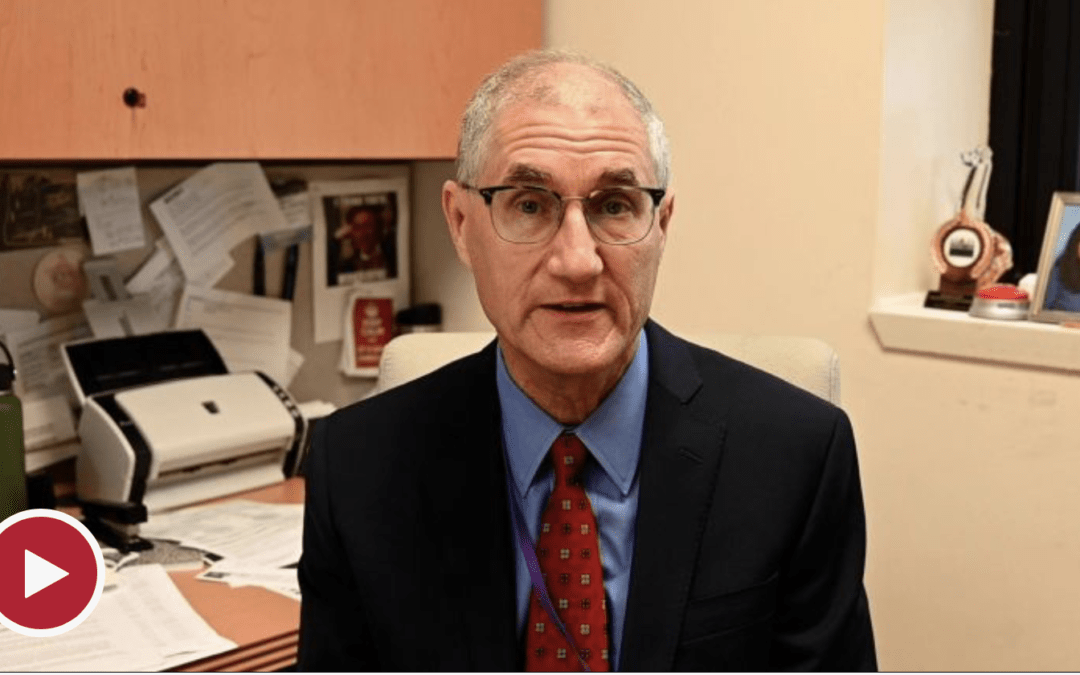
The lingering malaise of COVID-19: Need for mental health services has grown, Newsday
By Lisa L. Colangelo and David Reich-Hale, October 4, 2020
Six months after New Yorkers first hunkered down in response to the COVID-19 pandemic, the initial shock may have eased but the stress and anxiety have lingered, according to mental health experts.
The demand for counseling and therapy has increased as Long Islanders wait to see if schools can remain open, brace for flu season or even anticipate a possible second wave of COVID-19.
“There’s this sense that everyone’s waiting for the other shoe to drop,” said Dr. William Sanderson, a psychologist and director of the Anxiety & Depression Clinic at Hofstra University. “We aren’t really sure as we go into fall, are we going to be back where we were in March and April?”
In June 2020 on average, 36.5% of adults in the U.S. reported symptoms of anxiety and depression, according to the U.S. Census Bureau’s Household Pulse Survey. Between January 2019 and June 2019, 11% of adults reported those symptoms.
Health care providers are using a mix of telehealth and in-person visits to facilitate support groups, individual therapy and family therapy for people grappling with fear, anxiety, depression and other challenges stemming from the pandemic.

“A silver lining of the COVID pandemic is that it pushed mental health, full-force, into telehealth.” Dr. Adam Gonzalez, the director of Behavioral Health at Stony Brook Medicine
“A silver lining of the COVID pandemic is that it pushed mental health, full-force, into telehealth,” said Dr. Adam Gonzalez, the director of Behavioral Health at Stony Brook Medicine. “We saw a decrease in cancellations and no shows because of telehealth.”
At NYU Winthrop, demand for mental health services skyrocketed.
The pandemic “has a ripple effect on almost every layer of society,” said Dr. Aaron Pinkhasov, chairman of the Department of Psychiatry at NYU Winthrop Hospital, which has seen a 40% increase in demand for mental health services.
The ferocity of the news cycle has added to the stress, with reports of clusters of new casesemerging in New York and even the president and first lady testing positive in recent days.
No age group has been spared, Pinkhasov said. The lack of social contact has been especially difficult for young children as well as senior citizens. Then there is the pressure on adults caring for their children and aging parents, in many cases while working from home.
“Right now, more than ever, it’s important to expand mental health services and also educate primary care physicians, pediatricians, geriatric doctors and make them aware of the problem,” Pinkhasov said.
‘A chronic malaise’
During the height of the pandemic, the daily toll of infections, hospitalizations and deaths was grim and overwhelming. In April, over 700 New Yorkers died in one day.
But the percentage of new COVID-19 cases has hovered around a relatively low 1% for many weeks. The spread of the virus was slowed by the economic shutdown and individuals wearing masks, sheltering in place and avoiding crowds. The success came at a price.

“It cost us emotionally because a lot of it had to do with withdrawal and reductions in our lifestyle … now people are dealing with more of a chronic malaise.” Dr. William Sanderson, psychologist and director of the Anxiety & Depression Clinic at Hofstra University
“It cost us emotionally because a lot of it had to do with withdrawal and reductions in our lifestyle,” Sanderson said. “The shock is over and now people are dealing with more of a chronic malaise.”
Health care workers on the front lines fought hard to help patients, while dealing with their own stress, said Dr. Curtis Reisinger, a psychologist and director of Northwell’s Employee and Family Assistance Program, which offers confidential counseling services.
“We saw an eightfold increase in the number of people who called us after COVID,” Reisinger said. “We are still up 20% from what normal levels were.”

“We saw an eightfold increase in the number of people who called us after COVID.” Dr. Curtis Reisinger, psychologist and director of Northwell’s Employee and Family Assistance Program
He said that increase has come, in part, because people who might have been uncomfortable asking for assistance, realize how helpful talking to a therapist could be.
“The access is also that much better, because of telehealth,” Reisinger said.
Twenty-year-old Kelly Christ of Manhasset is hoping her struggles with anxiety will help others feel more comfortable to reach out for help. The Fordham University senior wrote blog posts and ran social media for the North Shore Child and Family Guidance Center this summer in an effort to help destigmatize the need to seek treatment.
“It was really good to have a person to talk to,” said Christ. “It made me feel like I wasn’t all alone, because sometimes if you’re talking to family and friends, you feel guilty.”
Others have seen existing mental health conditions aggravated.
John Lindstrom, 48, of Hicksville said his “depression has gone up a great deal” during the crisis.
Lindstrom, diagnosed with bipolar disorder in 2007, said he has only recently started to reconnect with family and friends after feeling severely isolated in his basement apartment during the height of pandemic — too fearful to venture out to a 7-Eleven store.
While he has continued telehealth, he misses the camaraderie at the Central Nassau Guidance and Counseling Services in Hicksville where he spent time several days a week.
Back-to-school worries
The excitement of children returning to school has been replaced with anxiety for parents and children, experts say.
“We are seeing a lot of school-aged children dealing with the aftermath of quarantine isolation and having to get used to a whole new world,” said Dr. Janet Kahn-Scolaro, administrative director of Behavioral Health, at Mount Sinai South Nassau Hospital. “There is a fear of the disease, not just for them but for their parents.”
Kahn-Scolaro said parents should be educated on how to help children process what they are seeing and hearing about the pandemic.
“Little kids hear a whole lot of stuff,” she said. “They never process it the way adults think they do.”
Regina Barros-Rivera, associate executive director at Roslyn Heights-based North Shore Child and Family Guidance Center, a not-for-profit children’s mental health agency, said children are missing beloved rituals such as birthday parties, picnics and the routine of going back and forth from school.
“I find parents who can offer structure can have more success,” she said. “Perhaps it’s a corner of a room that becomes their classroom. Create as much of a routine as possible.”
Winter days ahead
The warm summer months have given quarantine-weary Long Islanders a chance to get outside and safely visit with friends and family. But the long, lazy beach days are giving way to a brisk fall and earlier sunsets.

“As the weather turns colder a lot of us are fearful of what that means in terms of continuing to socialize.” Dr. David Flomenhaft, director of the outpatient Behavioral Health Services at Mercy Medical Center
Click to watch the video
“As the weather turns colder a lot of us are fearful of what that means in terms of continuing to socialize,” said Dr. David Flomenhaft, director of the outpatient Behavioral Health Services at Mercy Medical Center, which has seen a 20% increase in referrals over the last six months.
Flomenhaft said people should maintain routines, get exercise and avoid staying up late watching TV — even if they are working from home.
He is hopeful many can adapt: “We believe that people can grow and improve having survived difficult times.”
With David Olson
SOME PLACES FOR SUPPORT
- North Shore Child & Family Guidance Center, https://northshorechildguidance.org/, 516-626-1971, ext. 338 for English, ext. 364 for Spanish.
- Stony Brook Medicine’s Online Resources and Resiliency tools, stonybrookmedicine.edu/COVID19Support
- NY Project Hope Emotional Support Helpline, https://nyprojecthope.org/, COVID-19 Emotional Support Hotline, 1-844-863-9314.
SOURCE: Newsday Research.
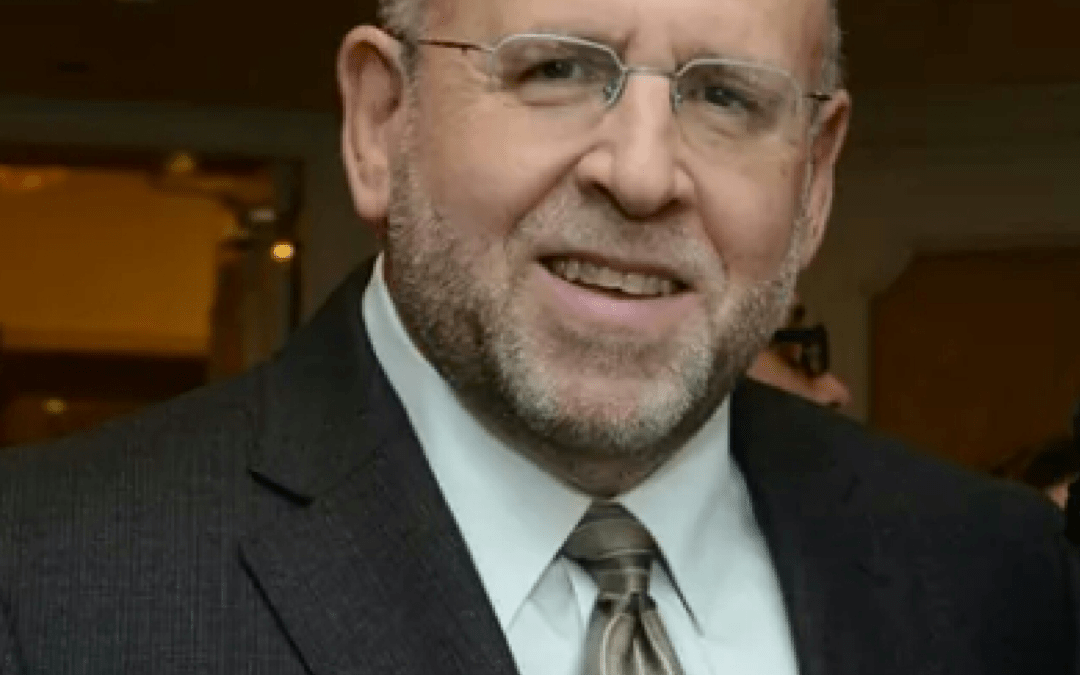
Power 30 Healthcare, Honoring Andrew Malekoff, Long Island Business News, September 24, 2020

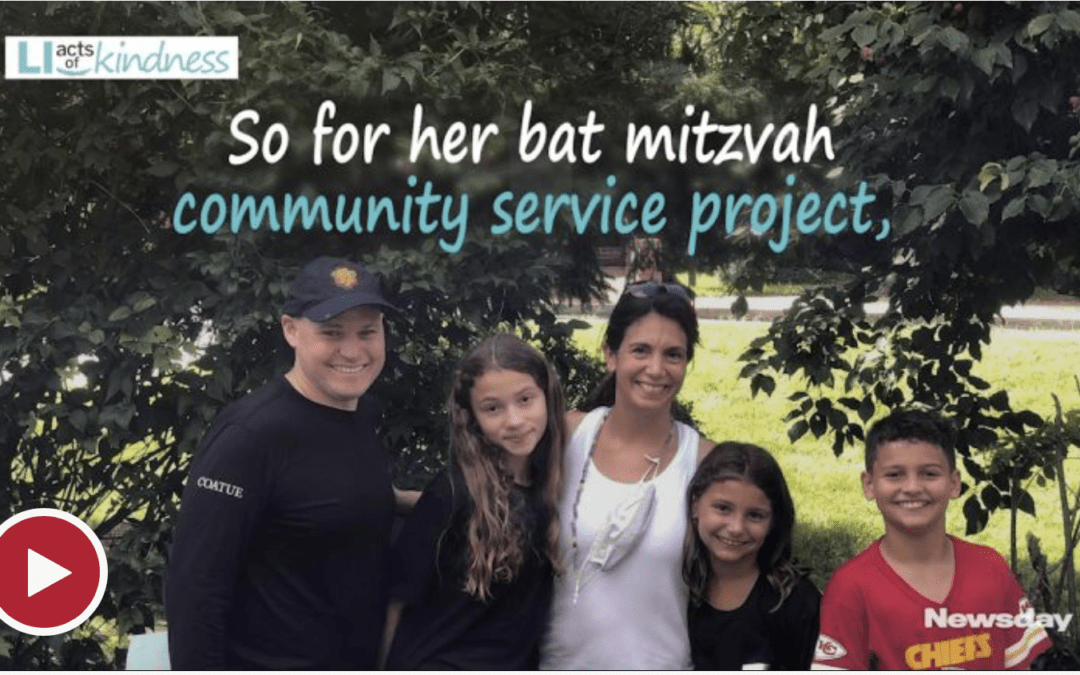
13-year-old Holds Exercise Class to Benefit Kids’ Mental Health, Newsday, October 2, 2020
As 13-year-old Sadie Feingold prepared for her bat mitzvah project this year, she had one goal in mind: to stop the stigma.
The eighth-grader from Port Washington knew she wanted to focus on mental health for her community service project ahead of her bat mitzvah, or Jewish coming-of-age ceremony. She wanted to encourage kids and teens to talk about mental health struggles and help normalize it.

Sadie Feingold, 13, of Port Washington, hosted an outdoor exercise class for her bat mitzvah community service project to help eliminate the stigma surrounding adolescent struggles with mental health. Credit: Jessica Feingold
She said she was inspired to focus on this topic because of her own previous struggles with mental health.
“The whole point was to raise awareness to it and normalize it,” Sadie said.
So after doing some research with her mom about the connection between exercise and children’s mental health, they came up with a plan: She would host an exercise class at their synagogue for local teens and families, and raise money to support the North Shore Child and Family Guidance Center in Roslyn Heights, a mental health agency that treats children and families.
The Guidance Center said her efforts have raised nearly $2,000.
“People don’t really talk about mental health as they do with physical health,” Sadie said. ”I think that some people feel like it’s not important, and I want people to feel like they should be able to talk about their emotions, as they would talk about like how they feel physically.”Best Bets
Get the scoop on events, nightlife, day trips, family fun and things to do on Long Island.Sign up
By clicking Sign up, you agree to our privacy policy.
The idea originated back in the winter — before the pandemic took hold. She and her mom read a piece in The New York Times that reported how even a moderate amount of exercise in adolescents can raise their endorphin levels, and in turn, help improve their mental health. Endorphins are hormones that promote feelings of natural well-being.
Sadie continued doing research on the topic, and once restrictions lifted and they could congregate outside, her class came together.
They invited family, friends and others to congregate in the parking lot of The Community Synagogue in Port Washington, and on Sept. 13, about 35 kids, teens and adults participated in the 45-minute class of individual exercises, led by a fitness instructor they knew.
They took donations at the class to support the Guidance Center — and encouraged those who couldn’t attend to donate as well. Sadie also gave out T-shirts with “#StopTheStigma” printed on them.
“I think it’s important … that kids feel comfortable, and so they’re not alone in dealing with these issues,” Sadie’s mom Jessica Feingold said. “It’s just something that tons of people deal with now more than ever, and I think it’s important to get that message out there.”
Sadie’s bat mitzvah had been originally scheduled for June, and was postponed to Sept. 26 because of the pandemic. But her mitzvah project only grew in relevance during this period.
Regina Barros-Rivera, associate executive director at the Guidance Center, said their work at the center has become more prevalent now, as the pandemic greatly affected children and teens. An effort like this one promotes “positive change” adolescents need, she said.
“For this young lady to create something — not only just that the exercise is good for you … it’s more that she’s creating, and she’s bringing,” she said. “Maybe more projects like this could be created.”
Barros-Rivera said the benefits from exercise and moving around for teens extend well beyond just energy level — it helps prevent them from ruminating, overthinking or feeling depressed or unable to move.
She added that the Guidance Center is offering virtual services for adolescents and families who might need help coping, and encourages them to reach out for help if they need it — even if they just have a question.
“Energy creates energy. Taking an action creates a change,” she said.
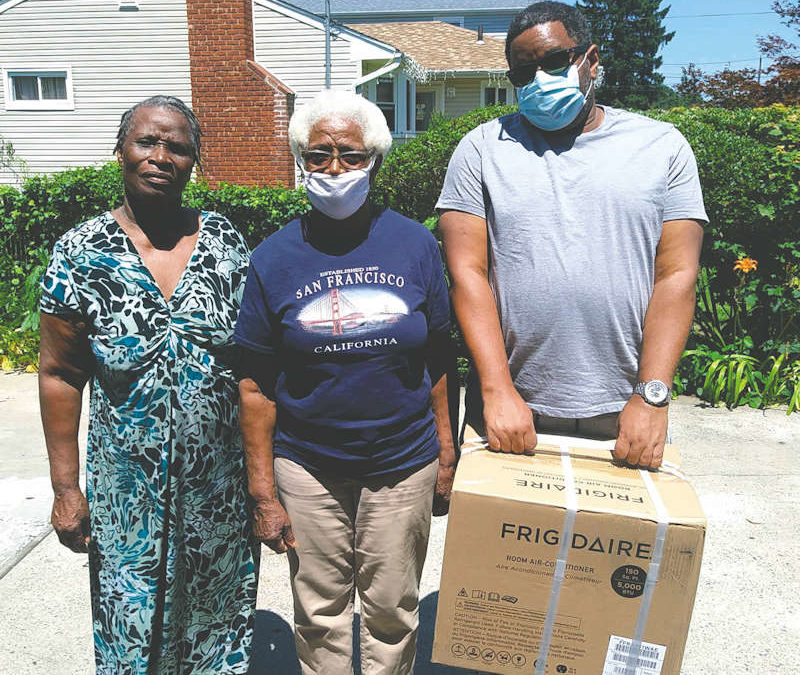
Cooling Relief For Westbury Families, Anton Media, September 29, 2020
Seven families in the Westbury/New Cassel community have weathered the heat waves this summer, thanks to some devoted North Shore Child & Family Guidance Center supporters.
Two of the women behind this effort—Dr. Betty Hylton and Marian Williams—are longtime members of the Leeds Place Advisory Council, and also members of Alpha Kappa Alpha Sorority Inc.’s Pi Pi Omega chapter. Since 1987, the women of Pi Pi Omega have been helping the Westbury/New Cassel community in numerous ways, and the Guidance Center and its clients have been among the beneficiaries of their generosity.
Hylton reached out to the Guidance Center’s Dr. Nellie Taylor-Walthrust asking how Pi Pi Omega could help. Taylor-Walthrust immediately thought of the seniors who take part in C-GRASP, the Guidance Center’s Caregiver Grandparent Respite and Support Program, which provides support to grandparents who are the primary caregivers of their grandchildren. The program is a partnership with Project Independence from the Town of North Hempstead’s Department of Services for the Aging, which serves seniors through the township.
“I was concerned because many of the seniors sought relief during the hot summers at the Yes We Can Community Center, but with the coronavirus, they had no place to shelter,” said Taylor-Walthrust, who identified seven families in need.
Dr. Hylton suggested she call Marian Williams.
“I asked if the Pi Pi Omega chapter could buy fans for them, but Marian said, ‘Why don’t we get them air conditioners?’ ” Taylor-Walthrust related.
The Pi Pi Omega chapter only had enough money to purchase three new air conditioners, but Williams, along with her daughter and son-in-law, bought the four remaining air conditioners to ensure everyone’s comfort and safety.
“When I woke up the morning we were delivering the three air conditioners, I thought about the heat wave and how these four other families really needed them,” says Williams. “As a former social worker, my passion all my life is to help those in need, so I couldn’t let anyone be left out. When you are blessed, you need to bless other people.”
Sorority sister Elvira Daniels also was instrumental in the effort.
Marie Dextra, a Guidance Center C-GRASP client, says the donation of the air conditioner is making a big difference in her family’s life.
“All of us are now able to sleep better at night,” Dextra said. “I’m so thankful to all the people who made this happen.”
—Submitted by the North Shore Child & Family Guidance Center
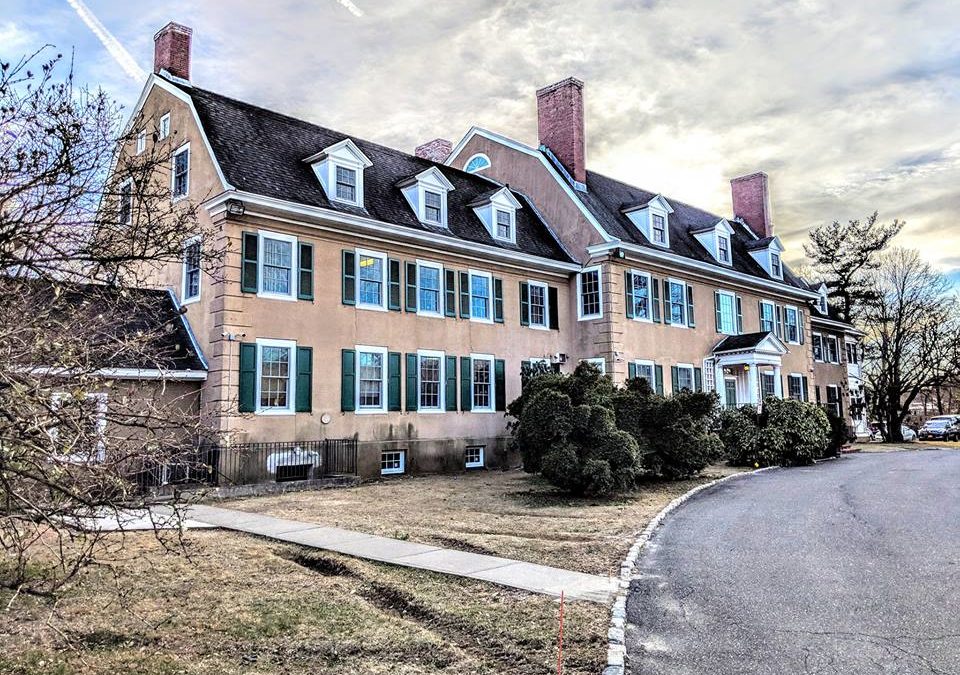
Guidance Center Launches Suicide Prevention Project, Sept. 2, 2020
Sept. 10, in honor of World Suicide Prevention Day, North Shore Child & Family Guidance Center is announcing the launch of the Douglas S. Feldman Suicide Prevention Project, an expansive initiative that aims to tackle the epidemic of suicide among young people.
“We get calls every single day from families in desperate need of help because their tweens and teens are expressing suicidal feelings,” said Regina Barros-Rivera, associate executive director of the Guidance Center, Long Island’s leading children’s mental health agency. “And with the isolation and heightened anxiety brought on by the COVID-19 pandemic, it’s created an even more dangerous situation.”
Ever since the stay-at-home order was put into place, she said, the Guidance Center has noted a significant increase in depression and anxiety among children and their families.
“The impact of this disaster is ongoing,” said Barros-Rivera. “Kids have lost their school and social connections, and many families have experienced the loss of loved ones. As a result of being secluded in an unstable home, children may also be exposed to domestic violence, substance abuse, neglect or other forms of violence.”
While the pandemic has created a surge in emergency cases at the Guidance Center, the crisis of suicide among young people is not new.
According to the U.S. Centers for Disease Control and Prevention, suicide is the second leading cause of death for ages 10-24, with more teenagers and young adults dying from suicide than from cancer, heart disease, birth defects, stroke, pneumonia, influenza and lung disease combined.
Elissa Smilowitz, who heads up the Triage & Emergency program at the Guidance Center, has been treating suicidal youngsters for several decades. She will also be providing leadership for the Douglas S. Feldman Suicide Prevention Project.
“We’ve always seen emergency cases within 24 to 48 hours, but with this new initiative, we will be expanding our efforts substantially,” said Smilowitz. With the Douglas S. Feldman Suicide Prevention Project, the Guidance Center will continue to address high-risk cases with a thorough evaluation for suicide risk; multiple sessions of individual, group and family therapy each week; and an individualized treatment plan that focuses on safety strategies and healthy coping skills.
“I’m very excited that we will be increasing our outreach to the community with a focus on suicide prevention,” said Smilowitz. “With this new project, we will offer services that will decrease the prevalence of suicidal thinking and actions in our children and teens through education forums, both face-to-face and with webinars. In addition, we will launch a suicide survivors’ support group for those who suffer this tragic loss.”
The Douglas S. Feldman Suicide Prevention Project is made possible by a generous gift from Donald and Ellen Feldman in memory of their son.
Andrew Malekoff, executive director of the Guidance Center, said, “We are grateful to the Feldmans for supporting the development of a suicide prevention initiative that will enhance our ability to reach young people who may see no way out from the despair they are feeling—especially during a time of unprecedented risk, deep divisions in our nation and a global pandemic.”
Donations to support the lifesaving work of the Douglas S. Feldman Suicide Prevention Project can be made on the Guidance Center’s website at www.northshorechildguidance.org. or by calling (516) 626-1971, ext. 320.
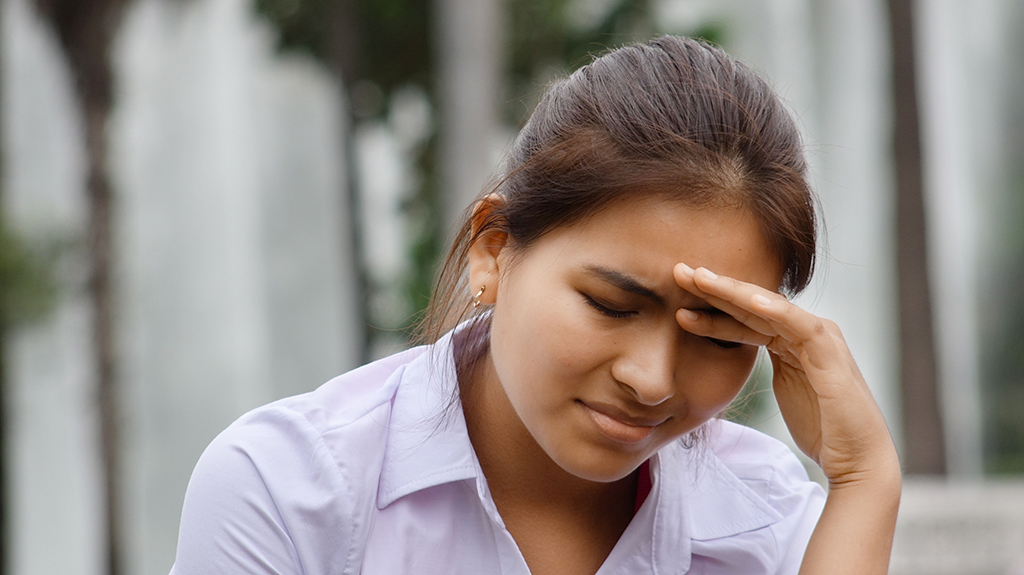
Guidance Center Launches Suicide Prevention Project, Sept. 1, 2020
North Shore Child & Family Guidance Center is pleased to announce that the nonprofit organization received a Community Development Block Grant from Nassau County for $147,500 to support its work serving Long Island’s communities during the pandemic crisis.
“During this most troubling and stressful time for so many families of all backgrounds, we are grateful to Nassau County for awarding us a Community Development Block Grant COVID grant,” said Andrew Malekoff, executive director of the Guidance Center. “It could not have come at a better time. We are seeing an increase in young people who are experiencing depression and anxiety, are at risk for suicide and other self-harming behaviors, and cannot afford to be placed on a waiting list. This funding supports our ability to offer a rapid response and quality mental health care for all families who need us regardless of their ability to pay.”
Nassau County distributed nearly $2.5 million in federal CDBG-COVID funding to 12 non-profit partners and nine municipalities across Nassau County to provide mental health and substance abuse services, youth and senior services, and health, safety, and accessibility upgrades for local community centers.
North Shore Child & Family Guidance Center, the leading children’s mental health agency on Long Island, is seeing new and existing clients via telephone and video during the COVID-19 crisis. To make an appointment, call (516) 626-1971. Visit www.northshorechildguidance.org for more information.

Guidance Center Grant Supports Children’s Mental Health, August 18, 2020
North Shore Child & Family Guidance Center is pleased to announce that the nonprofit organization received a Community Development Block Grant from Nassau County for $147,500 to support its work serving Long Island’s communities during the pandemic crisis.
“During this most troubling and stressful time for so many families of all backgrounds, we are grateful to Nassau County for awarding us a Community Development Block Grant COVID grant,” said Andrew Malekoff, executive director of the Guidance Center. “It could not have come at a better time. We are seeing an increase in young people who are experiencing depression and anxiety, are at risk for suicide and other self-harming behaviors, and cannot afford to be placed on a waiting list. This funding supports our ability to offer a rapid response and quality mental health care for all families who need us regardless of their ability to pay.”
Nassau County distributed nearly $2.5 million in federal CDBG-COVID funding to 12 non-profit partners and nine municipalities across Nassau County to provide mental health and substance abuse services, youth and senior services, and health, safety, and accessibility upgrades for local community centers.
North Shore Child & Family Guidance Center, the leading children’s mental health agency on Long Island, is seeing new and existing clients via telephone and video during the COVID-19 crisis. To make an appointment, call (516) 626-1971. Visit www.northshorechildguidance.org for more information.

Guidance Center Grant Supports Children’s Mental Health, August 18, 2020
The North Shore Child and Family Guidance Center is pleased to announce that the nonprofit organization received a Community Development Block Grant (CDBG) from Nassau County for $147,500 to support its work serving Long Island’s communities during the pandemic crisis.
“During this most troubling and stressful time for so many families of all backgrounds, we are grateful to Nassau County for awarding us a Community Development Block Grant COVID grant,” Andrew Malekoff, executive director of the Guidance Center, said. “It could not have come at a better time. We are seeing an increase in young people who are experiencing depression and anxiety, are at risk for suicide and other self-harming behaviors, and cannot afford to be placed on a waiting list. This funding supports our ability to offer a rapid response and quality mental health care for all families who need us regardless of their ability to pay.”
Nassau County distributed nearly $2.5 million in federal CDBG-COVID funding to 12 nonprofit partners and nine municipalities across Nassau County to provide mental health and substance abuse services, youth and senior services, and health, safety, and accessibility upgrades for local community centers.
North Shore Child and Family Guidance Center, the leading children’s mental health agency on Long Island, is seeing new and existing clients via telephone and video during the COVID-19 crisis. To make an appointment, call 516-626-1971. Visit www.northshorechildguidance.org for more information.
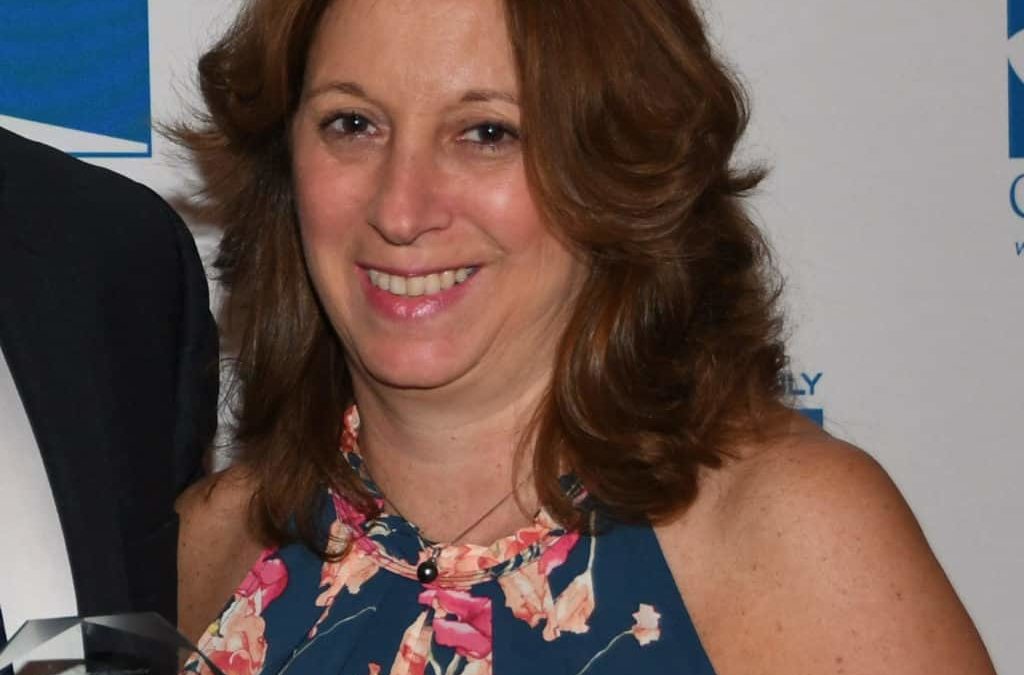
Powering Through an Outage, Parenting Plus, by Sue Cohen, August 17, 2020
On Tuesday, Aug.p 4, heavy wind and rain from Tropical Storm Isaias hit much of the east coast. More than 2 million customers in New York, New Jersey and Connecticut lost power as a result of the storm’s impact. One week later, some are still in the dark.
While power outages are always frustrating, the situation was made much more difficult with the ongoing COVID-19 pandemic. A large number of people are working from home and are dependent on their power, WiFi and phone services to be able to do so. With the cancellation of many summer programs and activities, lots of kids are bored at home already, and without power, they lose much of the entertainment they rely on so heavily.
As Director of Early Childhood and Psychological Services at North Shore Child & Family Guidance Center, I’ve seen how COVID-19 and social distancing protocols have reduced or even eliminated many opportunities for respite, such as staying at the home of a friend or relative who has power. All your usual options that can help in an outage aren’t necessarily there.
It is crucial that parents do their best to remain calm, as your children will model their own behavior from you. When you lose it, they will do the same—and, fortunately, the opposite is true, too.
Before the next outage hits, take preventative actions by creating power outage kits for the entire family. These should include necessities such as flashlights, batteries, nonperishable food and water, but also off-the-grid activities for the family to participate in together. In our digital world, it is especially important for children to find engaging activities that do not take place on a screen. Power outages provide an opportunity to introduce these experiences to your children and remind them of the need to disconnect every so often.
Though it can be hard to find anything positive that has come from the COVID-19 pandemic, parents have mastered the act of improvisation. For months, they’ve learned how to entertain anxious children and navigate uncertainty. While power outages can be difficult, they offer yet another opportunity to spend quality time with your children and to explore new activities.
Parents need to take a step back and try to think outside of the box. Power outages have provided the foundation for some of my most treasured memories. One time, my daughter wanted to bake cookies, but due to the power outage, she attempted to make them on a pancake griddle. Though the cookies may not have turned out as good as usual, the memory is one that always brings a smile.
Parents should also attempt to find the positive in this situation. Just as your children should try different, off-the-grid activities, you should do the same. It’s easy to slip back into the
smartphone-focused world we usually live in. Use this opportunity to establish small habits such as daily reading or writing time or meditation exercises that can bring calm to your day.
Younger children may enjoy hands-on activities such as making crafts, going on a scavenger hunt, putting on a puppet show or playing dress up. Older children can get lost in a book, engage in healthy competition in a board game or learn card games.
No matter the season, power outages are difficult for families to deal with, but when they occur alongside a pandemic and a heat wave, they are even more challenging. However, this experience may serve as a teaching moment for parents and kids to learn the benefits of unplugging and finding enjoyment in the simple things in life.
Dr. Sue Cohen is the Director of Early Childhood and Psychological Services at North Shore Child & Family Guidance Center, the leading children’s mental health agency on Long Island. The Guidance Center is seeing new and existing clients via telephone and video during the COVID-19 crisis. To make an appointment, call (516) 626-1971.

Anti-Asian Bias: What Parents Need to Know
Roslyn Heights, NY, August 25, 2020 — On Thursday September 10, 2020 at 7 p.m., North Shore Child & Family Guidance Center and the Great Neck Chinese Association will be cohosting a free webinar titled “Anti-Asian Bias: What Parents Need to Know.”
“The Covid-19 pandemic has led to a substantial increase in acts of bias against Chinese Americans and other Asian-Americans around the country,” said Kevin Sun, Co-President of the Great Neck Chinese Association. “And it’s happening right here on Long Island. Kids and adults are being verbally harassed, spit on and shunned in stores. It’s a very concerning situation.”
While many families have shared stories with him about these incidents of racial bias, one was particularly heartbreaking. “The parents of a seven-year-old boy told me that some kids surrounded their son on a playground, cursing at him and making anti-Chinese remarks,” said Sun. “The little boy was frightened and traumatized, and the parents were devastated to see the impact on their child.”
“The Asian-American community is facing a backlash that’s similar to what Muslims faced after 9/11,” said Andrew Malekoff, Executive Director of the Guidance Center, the region’s leading children’s mental health organization. “Pandemic-fueled harassment and violence creates lasting trauma, especially for youngsters, and all of us are responsible to stand up against these horrific attacks.”
The webinar, which will air live but be recorded for later viewing, will cover the discrimination issues facing Asian-Americans and, most important, give people resources and information that they can use if they or their children are subject to harassment.
“It’s common in our culture for people to keep quiet about these matters, especially when they are new immigrants,” said Sun, “but if we don’t know specifics about the attacks, it’s much harder to help. There are people out there who can offer assistance, whether it be the mental health professionals at the Guidance Center or legal authorities.”
State Senator Anna Kaplan, who is the first political refugee and the first Iranian-American elected to the New York State Senate, will discuss anti-discrimination laws during the webinar.
“The crisis we find ourselves in has brought out the best and worst in people, and unfortunately we have seen a significant escalation of harassment and violence against the Asian-American community fueled by anti-Asian bias and xenophobia,” said Kaplan. “As Americans, we need to rise to this occasion, and face this challenge as a family, and there is no place in our American family for hatred and bias. I’m grateful for the efforts of North Shore Child & Family Guidance Center and the Great Neck Chinese Association for holding this important event to empower our community with the tools we need to deal with this crisis, and I encourage everyone to participate and be part of the solution.”
Other participants will include Regina Barros-Rivera, Associate Executive Director of the Guidance Center;
Christine Liu, the Vice Chair of the Nassau Asian American Advisory Council and a board member at the Chinese American Association of North Hempstead and Herricks Chinese Association; and ChenXin Xu, Board Member of the Great Neck Chinese Association and Founder, New York Music & Arts.
The free webinar is open to everyone. Questions will be taken during the event, or people can email questions prior to the webinar at president@gnca.org.
For more information about the Great Neck Chinese Association, visit www.gnca.org. To learn more about the services offered by the Guidance Center, visit www.northshorechildguidance.org.
About Us: As the preeminent not-for-profit children’s mental health agency on Long Island, North Shore Child & Family Guidance Center is dedicated to restoring and strengthening the emotional well-being of children (from birth – age 24) and their families. Our highly trained staff of psychiatrists, psychologists, social workers, vocational rehabilitation counselors and other mental health professionals lead the way in diagnosis, treatment, prevention, training, parent education, research and advocacy. The Guidance Center helps children and families address issues such as depression and anxiety; developmental delays; bullying; teen pregnancy; sexual abuse; teen drug and alcohol abuse; and family crises stemming from illness, death, trauma and divorce. For more than 65 years, the Guidance Center has been a place of hope and healing, providing innovative and compassionate treatment to all who enter our doors, regardless of their ability to pay. For more information about the Guidance Center, visit www.northshorechildguidance.org or call (516) 626-1971.
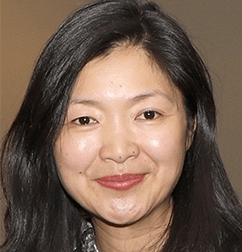
Anti-Asian Bias: What Parents Need to Know, August 27, 2020
On Thursday Sept. 10 at 7 p.m., North Shore Child & Family Guidance Center and the Great Neck Chinese Association will be co-hosting a free webinar titled “Anti-Asian Bias: What Parents Need to Know.”
“The COVID-19 pandemic has led to a substantial increase in acts of bias against Chinese Americans and other Asian-Americans around the country,” said Kevin Sun, co-president of the Great Neck Chinese Association. “And it’s happening right here on Long Island. Kids and adults are being verbally harassed, spit on and shunned in stores. It’s a very concerning situation.”
While many families have shared stories with him about these incidents of racial bias, one was particularly heartbreaking. “The parents of a seven-year-old boy told me that some kids surrounded their son on a playground, cursing at him and making anti-Chinese remarks,” said Sun. “The little boy was frightened and traumatized, and the parents were devastated to see the impact on their child.”
“The Asian-American community is facing a backlash that’s similar to what Muslims faced after 9/11,” said Andrew Malekoff, executive director of the Guidance Center, the region’s leading children’s mental health organization. “Pandemic-fueled harassment and violence creates lasting trauma, especially for youngsters, and all of us are responsible to stand up against these horrific attacks.”
The webinar, which will air live but be recorded for later viewing, will cover the discrimination issues facing Asian-Americans and, most important, give people resources and information that they can use if they or their children are subject to harassment.
“It’s common in our culture for people to keep quiet about these matters, especially when they are new immigrants,” said Sun, “but if we don’t know specifics about the attacks, it’s much harder to help. There are people out there who can offer assistance, whether it be the mental health professionals at the Guidance Center or legal authorities.”
State Senator Anna Kaplan, who is the first political refugee and the first Iranian-American elected to the New York State Senate, will discuss anti-discrimination laws during the webinar.
“The crisis we find ourselves in has brought out the best and worst in people, and unfortunately we have seen a significant escalation of harassment and violence against the Asian-American community fueled by anti-Asian bias and xenophobia,” said Kaplan. “As Americans, we need to rise to this occasion, and face this challenge as a family, and there is no place in our American family for hatred and bias. I’m grateful for the efforts of North Shore Child & Family Guidance Center and the Great Neck Chinese Association for holding this important event to empower our community with the tools we need to deal with this crisis, and I encourage everyone to participate and be part of the solution.”
Other participants will include Regina Barros-Rivera, Associate Executive Director of the Guidance Center; Christine Liu, the vice chair of the Nassau Asian American Advisory Council and a board member at the Chinese American Association of North Hempstead and Herricks Chinese Association; and ChenXin Xu, Board Member of the Great Neck Chinese Association and Founder, New York Music & Arts.
The free webinar is open to everyone. Questions will be taken during the event, or people can email questions prior to the webinar at president@gnca.org.
For more information about the Great Neck Chinese Association, visit www.gnca.org. To learn more about the services offered by the Guidance Center, visit www.northshorechildguidance.org.
Coronavirus News: Parents struggle with back-to-school decisions amid COVID pandemic, ABC News, By Stacey Sager, August 20, 2020
LONG ISLAND (WABC) — With the academic year about to begin and the debate raging whether in-person, remote or hybrid learning is best for children and staff, many parents are experiencing anxiety over how to safely proceed.
On Long Island, Noah and his little brother Ayden are holding onto summer. But their parents are feeling anything but carefree. The boys will start second grade and kindergarten, respectively, in their homes. They have siblings even younger, and older grandparents who help care for them..
“The benefit doesn’t outweigh the risk,” mom Suzanne Jaramillo said. “I think every day we would come home worried.”
For Kelly McGrath Sullivan, it’s also about risk during the pandemic.
“I can’t have those what-ifs at night,” she said. “There’s just too many of them.”
Her boys lost their father eight years ago, and they say too much is at stake now.
“I know there are other people in this situation, where you only have one parent,” son and incoming freshman Jack Sullivan said. “And I can’t go to school and bring this virus home to my mother.”
That parental anxiety swings both ways, as other parents worry what will happen if they’re kids aren’t back in school five days a week.
“For me, it’s heartbreaking because I had my child come to me and tell me he’s depressed,” mom Maria Sanders said.
Many students struggle with remote learning.
“It’s just a loss to the children,” mom Jennifer DeMos said. “They’ve wasted time, and they’ve lost learning.”
So what can parents do to get through this? Weigh the pros and cons for your own family, talk to your older kids about what they want, and ask your school district as many questions as you can.
Elissa Smilowitz, of the North Shore Child and Family Guidance Center, runs one of four free support groups for Long Island parents.
“Another fear they have is that school opens, right, and in another two weeks, they have to shut down again,” she said. “What is that going to do to the child emotionally? And also academically?”
She also warns that parents’ anxiety is often absorbed by their children, so it’s important to help them see the positive with the negative.

Guidance Center Grant Supports Children’s Mental Health, Anton Media, August 18, 2020
The North Shore Child and Family Guidance Center is pleased to announce that the nonprofit organization received a Community Development Block Grant (CDBG) from Nassau County for $147,500 to support its work serving Long Island’s communities during the pandemic crisis.
“During this most troubling and stressful time for so many families of all backgrounds, we are grateful to Nassau County for awarding us a Community Development Block Grant COVID grant,” Andrew Malekoff, executive director of the Guidance Center, said. “It could not have come at a better time. We are seeing an increase in young people who are experiencing depression and anxiety, are at risk for suicide and other self-harming behaviors, and cannot afford to be placed on a waiting list. This funding supports our ability to offer a rapid response and quality mental health care for all families who need us regardless of their ability to pay.”
Nassau County distributed nearly $2.5 million in federal CDBG-COVID funding to 12 nonprofit partners and nine municipalities across Nassau County to provide mental health and substance abuse services, youth and senior services, and health, safety, and accessibility upgrades for local community centers.
North Shore Child and Family Guidance Center, the leading children’s mental health agency on Long Island, is seeing new and existing clients via telephone and video during the COVID-19 crisis. To make an appointment, call 516-626-1971. Visit www.northshorechildguidance.org for more information.

Guidance Center Grant Supports Children’s Mental health
Roslyn Heights, NY, August 17, 2020 — North Shore Child & Family Guidance Center is pleased to announce that the nonprofit organization received a Community Development Block Grant (CDBG) from Nassau County for $147,500 to support its work serving Long Island’s communities during the pandemic crisis.
“During this most troubling and stressful time for so many families of all backgrounds, we are grateful to Nassau County for awarding us a Community Development Block Grant COVID grant,” said Andrew Malekoff, Executive Director of the Guidance Center. “It could not have come at a better time. We are seeing an increase in young people who are experiencing depression and anxiety, are at risk for suicide and other self-harming behaviors, and cannot afford to be placed on a waiting list. This funding supports our ability to offer a rapid response and quality mental health care for all families who need us regardless of their ability to pay.”
Nassau County distributed nearly $2.5 million in federal CDBG-COVID funding to 12 non-profit partners and nine municipalities across Nassau County to provide mental health and substance abuse services, youth and senior services, and health, safety, and accessibility upgrades for local community centers.
North Shore Child & Family Guidance Center, the leading children’s mental health agency on Long Island, is seeing new and existing clients via telephone and video during the COVID-19 crisis. To make an appointment, call (516) 626-1971. Visit www.northshorechildguidance.org for more information.
About Us:
As the preeminent not-for-profit children’s mental health agency on Long Island, North Shore Child & Family Guidance Center is dedicated to restoring and strengthening the emotional well-being of children (from birth – age 24) and their families. Our highly trained staff of psychiatrists, psychologists, social workers, vocational rehabilitation counselors and other mental health professionals lead the way in diagnosis, treatment, prevention, training, parent education, research and advocacy. The Guidance Center helps children and families address issues such as depression and anxiety; developmental delays; bullying; teen pregnancy; sexual abuse; teen drug and alcohol abuse; and family crises stemming from illness, death, trauma and divorce. For more than 65 years, the Guidance Center has been a place of hope and healing, providing innovative and compassionate treatment to all who enter our doors, regardless of their ability to pay. For more information about the Guidance Center, visit www.northshorechildguidance.org or call (516) 626-1971.

Powering Through an Outage, By Dr. Sue Cohen, Anton Media, August 17, 2020
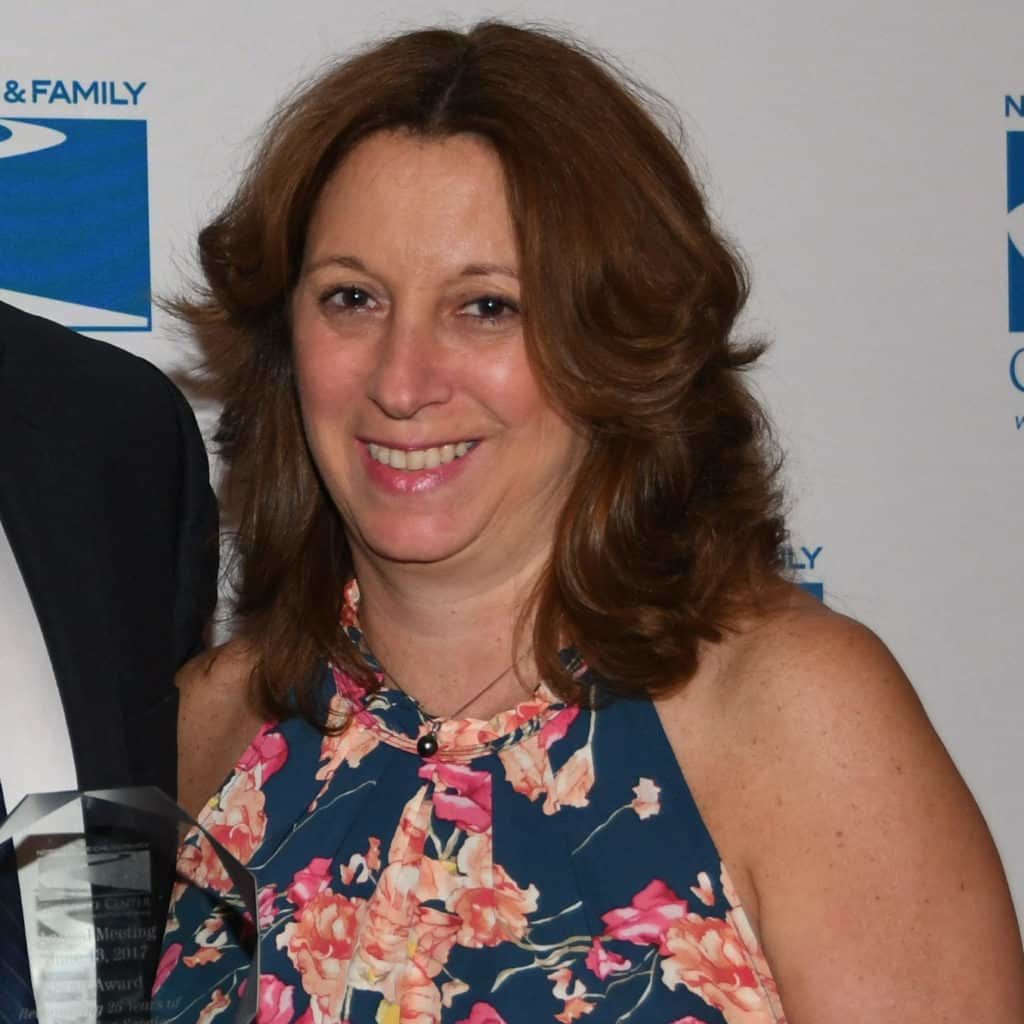
On Tuesday, August 4, heavy wind and rain from Tropical Storm Isaias hit much of the east coast. More than 2 million customers in New York, New Jersey and Connecticut lost power as a result of the storm’s impact. One week later, some are still in the dark.
While power outages are always frustrating, the situation was made much more difficult with the ongoing COVID-19 pandemic. A large number of people are working from home and are dependent on their power, WiFi and phone services to be able to do so. With the cancellation of many summer programs and activities, lots of kids are bored at home already, and without power, they lose much of the entertainment they rely on so heavily.
As Director of Early Childhood and Psychological Services at North Shore Child & Family Guidance Center, I’ve seen how COVID-19 and social distancing protocols have reduced or even eliminated many opportunities for respite, such as staying at the home of a friend or relative who has power. All your usual options that can help in an outage aren’t necessarily there.
It is crucial that parents do their best to remain calm, as your children will model their own behavior from you. When you lose it, they will do the same—and, fortunately, the opposite is true, too.
Before the next outage hits, take preventative actions by creating power outage kits for the entire family. These should include necessities such as flashlights, batteries, nonperishable food and water, but also off-the-grid activities for the family to participate in together. In our digital world, it is especially important for children to find engaging activities that do not take place on a screen. Power outages provide an opportunity to introduce these experiences to your children and remind them of the need to disconnect every so often.
Though it can be hard to find anything positive that has come from the COVID-19 pandemic, parents have mastered the act of improvisation. For months, they’ve learned how to entertain anxious children and navigate uncertainty. While power outages can be difficult, they offer yet another opportunity to spend quality time with your children and to explore new activities.
Parents need to take a step back and try to think outside of the box. Power outages have provided the foundation for some of my most treasured memories. One time, my daughter wanted to bake cookies, but due to the power outage, she attempted to make them on a pancake griddle. Though the cookies may not have turned out as good as usual, the memory is one that always brings a smile.
Parents should also attempt to find the positive in this situation. Just as your children should try different, off-the-grid activities, you should do the same. It’s easy to slip back into the smartphone-focused world we usually live in. Use this opportunity to establish small habits such as daily reading or writing time or meditation exercises that can bring calm to your day.
Younger children may enjoy hands-on activities such as making crafts, going on a scavenger hunt, putting on a puppet show or playing dress up. Older children can get lost in a book, engage in healthy competition in a board game or learn card games.
No matter the season, power outages are difficult for families to deal with, but when they occur alongside a pandemic and a heat wave, they are even more challenging. However, this experience may serve as a teaching moment for parents and kids to learn the benefits of unplugging and finding enjoyment in the simple things in life.
Dr. Sue Cohen is the Director of Early Childhood and Psychological Services at North Shore Child & Family Guidance Center, the leading children’s mental health agency on Long Island. The Guidance Center is seeing new and existing clients via telephone and video during the COVID-19 crisis. To make an appointment, call (516) 626-1971.

Making the Case for Telehealth, by Andrew Malekoff, Anton Media, July 16, 2020
Two major New York State mental health advocacy organizations—the New York State Council for Community Behavioral Healthcare (the Council) and the Community Health Care Association of New York State (CHCANY)—have made a formal recommendation that New York State permanently removes barriers to the provision of telehealth visits for all New Yorkers after the COVID-19 pandemic disaster declarations have expired.
In their recent press release on the matter, they stated: “Increased use of telehealth has allowed primary care, mental health and substance use disorder care recipients who cannot physically visit a healthcare professional in-person to use their phone or computer to access the services they need.”
At North Shore Child & Family Guidance Center, we support these efforts to ensure a comprehensive, coordinated and integrated continuum of care. I asked members of our mental health staff to share their experiences with telehealth during the pandemic so we could add our voice to the advocacy effort.
One of our staff members, Vanessa McMullan, who is a clinical social worker with special expertise in the area of postpartum depression, shared her thoughts with me. Beyond using her testimony to advocate for continued and permanent use of telehealth, I thought I would take this opportunity to inform you, my readers, about our experience in the transition to remote counseling.
As Vanessa testified: “I feel compelled to show my support in recommending that New York State permanently remove barriers in providing telehealth services for all New Yorkers following the COVID-19 pandemic.
“As a Licensed Social Worker who has been practicing for 15 years, I have seen families face many crises. With the current pandemic, it has been incredibly valuable to remain connected with clients, as well as engage new people in need of help. Without access to telehealth services, there are many families that we would be unable to monitor and help in a safe way. I truly believe that by providing essential care via teletherapy, mental health practitioners have saved lives.
“I am currently the Coordinator of the Diane Goldberg Maternal Depression Program at the Guidance Center’s Marks Family Right from the Start Center in Manhasset. We work with women who are pregnant or in the postpartum period around issues of maternal mental health. For women and families that are struggling with perinatal mood and anxiety disorders, having a baby can be overwhelming, frustrating and in some instances, unsafe. Pregnant women, newborns and young children are a particularly vulnerable population in terms of their health, and there is understandable anxiety and resistance in going anywhere that can potentially expose them to sickness.
“This means that women will defer seeking mental health treatment in order to eliminate the risk of getting themselves and their children sick.
“We have seen this situation before as it relates to reaching these women soon after they give birth, as the recommendation has been not to bring the baby into public areas before they start receiving vaccinations at eight weeks old. This has caused some mothers to delay treatment, since they do not want to risk bringing their baby, but also have no one to leave them home with. Similarly, we have had mothers cancel sessions due to rain or snow, or predicted rain or snow, due to anxiety about bringing the child out in bad weather. They have verbalized it as being ‘selfish’ to bring the baby out to do something for themselves, in case something bad happens while on the road. These women are typically those who need services the most.
“Families have expressed relief in knowing that they are still getting the mental health services they need without bringing their baby to an office or clinic that could have serious implications. We are having ongoing conversations and processing if/when things will be safe again.
I think it’s important to realize that when the declaration expires, it does not mean that the crisis is over. Trauma lingers. We need to ensure that people will still be able to access services, and by allowing telehealth to continue, these efforts will be supported.”
By removing the barriers to the permanent use of telehealth and reimbursing telehealth visits on par with in-person visits, New York will go a long way to advancing a comprehensive, coordinated and integrated continuum of mental health care.
Andrew Malekoff is the Executive Director of North Shore Child & Family Guidance Center, the leading children’s mental health agency on Long Island. The Guidance Center is seeing new and existing clients via telephone and video during the COVID-19 crisis. To make an appointment, call (516) 626-1971. Visit www.northshorechildguidance.org for more information.
Goodbye, germs! A coloring book about staying clean and safe from coronavirus germs
Cohen Children’s Northwell Health Coloring Book makes it easy to talk with your kids about COVID-19. Click Here to Download this coloring book made just for them in an easy to read format.
47354_coloringbook_w305478_corona_kid_master_21mar2020_all-coloring-pages
Covid-19 PTSD is Inevitable, Nikki on the Daily blog, July 2, 2020
As COVID-19 cases begin to surge across the country, again, questions surrounding when life will truly return to normal rise along with it. And yet, our current plight is anything but a mystery. Did we really think we had this thing beat in less than four months? Was reopening such a good idea?
As New York State’s numbers, once the epicenter of the pandemic, continue to decline the only thing that everyone (well, almost everyone) can agree on is that, no matter where you are, this is still far from over. In addition to the virus itself, according to the American Psychological Association COVID-19 aggravates existing mental health problems while potentially onsetting new symptoms– symptoms that can outlast the virus.
There is a universal trauma happening.
It’s been well documented that trauma occurs from war, oppression, natural disasters, and individual experiences. The current pandemic is no different, except it is a “mass trauma” filled with “anticipatory anxiety” on a worldwide scale. Without a cure or vaccine, society collectively wonders– will it come back? Is it safe to reopen? As more people file for unemployment and businesses continue to shut their doors, physical recovery is compounded with an eye on financial recovery. These anxieties are known as “peritraumatic”, occurring around the time of trauma in the form of intrusive thoughts.
Jessica Corea, a Licensed Mental Health Counselor, explained, “The world is experiencing a unifying trauma of loss and uncertainty. Patients are facing anxiety, depression, and financial stress all at the same time while trying to adapt to a new normal.” Even when the pandemic itself passes, it is sure to leave mass emotional destruction in its wake in the form of Post Traumatic Stress Disorder (PTSD), a classified mental disorder in the Diagnostic and Statistical Manual of Mental Disorders. Like any radical shift, the traumatic effects can go on for years.
Posttraumatic Stress Disorder can happen to anyone.
“Previous epidemic studies report high prevalence rates among people exposed to the trauma resulted from an infectious disease epidemic,” the National Center for Biotechnology Informationreported on June 5, 2020. Just like SARS, MERS, and HIV/AIDS, COVID-19 survivors are most at risk for PTSD, followed by family members who directly witnessed a loved one suffer or die, medical workers, and the general public. Further, the psychological trauma was categorized into three groups. First, directly experiencing the symptoms. Next, witnessing those who struggled. And third, experiencing a “realistic or unrealistic fear of infection, social isolation, exclusion, and stigmatization.” Essentially, like the virus itself, everyone is at risk.
“There is now a new normal that may be with us for a long time. Just as 911 impacted our lives in many ways so has this pandemic. I would certainly call this a traumatic event that has impacted everyone,” noted Elissa Smilowitz, Director of Triage and Emergency at North Shore Child & Family Guidance Center on Long Island.
Health experts across the globe are now preparing to treat patients with COVID-19 PTSD. Except the underlying issue is that PTSD symptoms don’t begin to develop until weeks or months after a traumatic event, and we are still in the middle of the pandemic itself. So, when does peritraumatic end and posttraumatic begin?
Medical News Today explains the four symptom types of PTSD are reexperiencing trauma, avoiding situations, negative changes in perception, and hyperarousal, in the forms of nightmares or flashbacks. Michigan Medicine’s Department of Psychiatry also reported, “PTSD is also associated with exaggerated activity in the brain networks associated with processing threat-detection and negative emotional responses.”
Reopening is contributing to a societal anxiety.
As cities across America roll back reopening, the response to COVID-19 is still being tackled on a state by state level. New York recently put gyms and malls on an indefinite pause while its New Jersey neighbor halted indoor dining. Meanwhile, in a reversal of events, New Jersey greeted shoppers at the local malls as Long Islanders enjoyed indoor dining at 50% capacity. In addition, New York, New Jersey, and Connecticut are now mandating a 14-day quarantine period for anyone traveling from 16 states– that’s double the amount originally reported only a week ago.
“The pandemic has really caused mental health struggles that I’ve never experienced. After postponing my wedding twice and losing two grandparents to COVID, all in less than a month, it feels strange that the world is trying to go back to normal so fast,” Long Island native Melissa Navon expressed of her personal struggles. “Nothing feels normal for me and the threat isn’t over yet. It’s difficult to explain how that feels to others who haven’t been personally affected. Many young people don’t think they need to wear masks. What they don’t understand, for some reason, is wearing a mask will protect those at risk. People like my grandparents might have survived this pandemic if everyone took the proper precautions.”
With no sense of stability or continuity mindsets are becoming increasingly fragile. After months of self-isolation reopening became a source of hope. The phases were planned, something to look forward to. Smilowitz said, “Some families are recognizing that the reopening is a good sign. However they are still anxious about whether these safety protocols will be enough.”
Focus on what you can control.
Beyond wondering how to behave there is continued concern over others behavior as well, as mask shaming trumps even political agendas. But the longer the pandemic goes on the less secure it all feels. Society is losing trust with its government and health officials, as new information spreads on a daily basis. Without a sense of guidance the internal battle to feel some sort of normalcy is lost.
Corea explained that early in the pandemic “patients were experiencing guilt for small aspects of joy” while others were suffering. Throughout, it has remained important for individuals to find balance and process fluctuating feelings. “It can shift within minutes given the current circumstances. Patients are encouraged to prioritize self-care and avoid running themselves down so they can be fully present, even if that means making a difficult decision to say no to others and setting more boundaries.”
Unlike scenarios of the past, isolation has been a key factor of the pandemic making traditional stress management unattainable. Something as simple as seeing loved ones can onset anxiety. But there are ways to cope.
“These thoughts don’t serve you. Live in the present, do not dwell. Having some control in your environment helps you feel more grounded and less anxious. Go slow, maybe just do one thing you would like to do and see how it feels,” advised Smilowitz.
How will we navigate PTSD in a post COVID world is yet to be seen, but experts across the board agree that for a large percentage of humanity it is inevitable. For a comprehensive list of ways to get ahead of COVID-19 PTSD, visit the U.S. Department of Veteran Affairs National Center For PTSD.
Coronavirus Anxiety Workbook in English and Spanish
Click Here to View Full PDF and to Download Coronavirus-Anxiety-Workbook Click Here to View Full PDF and to Download Spanish-Managing-Coronavirus-Anxiety-Workbook
Greentblatt, Zitelli Join Guidance Center Board, Anton Media, June 19, 2020
North Shore Child & Family Guidance Center has two new members on its Board of Directors: Nassau County residents Jeffrey Greenblatt and Jacklyn A. Zitelli.
Jeffrey Greenblatt, who co-chaired the Guidance Center’s Trivia Night fundraiser this year, is Assistant Regulatory Counsel at PSEG Long Island. He received his J.D. from St. John’s and his B.A. from the University of Michigan.
“Long Island is a special place,” said Greenblatt, who lives in Syosset with his wife Jaclyn and three daughters, Hayley, Harper and Taylor. “It’s where I grew up, work and raise my family. I always feel good anytime I’m able to give back to the local community. That’s why it’s such an easy decision to join during tough times like these and support an agency like the Guidance Center now and in the future.”
Zitelli, counsel in Farrell Fritz’s real estate practice group, is a resident of Jericho, where she lives with her husband Michael and two children. She earned her J.D. from St. John’s University School of Law and her B.A. from Syracuse University.
“It is an honor to join such a great organization and to support its important mission,” said Zitelli. “I believe that children and families gain invaluable experiences from North Shore Child & Family Guidance Center throughout every stage of life. I’ve been appreciative of the services and programs offered through the Guidance Center for many years and am enthusiastic about now being able to directly contribute to its initiatives as a board member.”
Board President Paul Vitale is excited to welcome Greenblatt and Zitelli to the Guidance Center team. “Jeffrey did a great job getting a big crowd out for a fun experience at Trivia Night, and both his and Jacklyn’s energy and passion for our mission will be a huge asset as we navigate these challenging times.”
To learn more about North Shore Child & Family Guidance Center, Long Island’s preeminent children’s mental health agency, please call (516) 626-1971 or visit www.northshorechildguidance.org.
